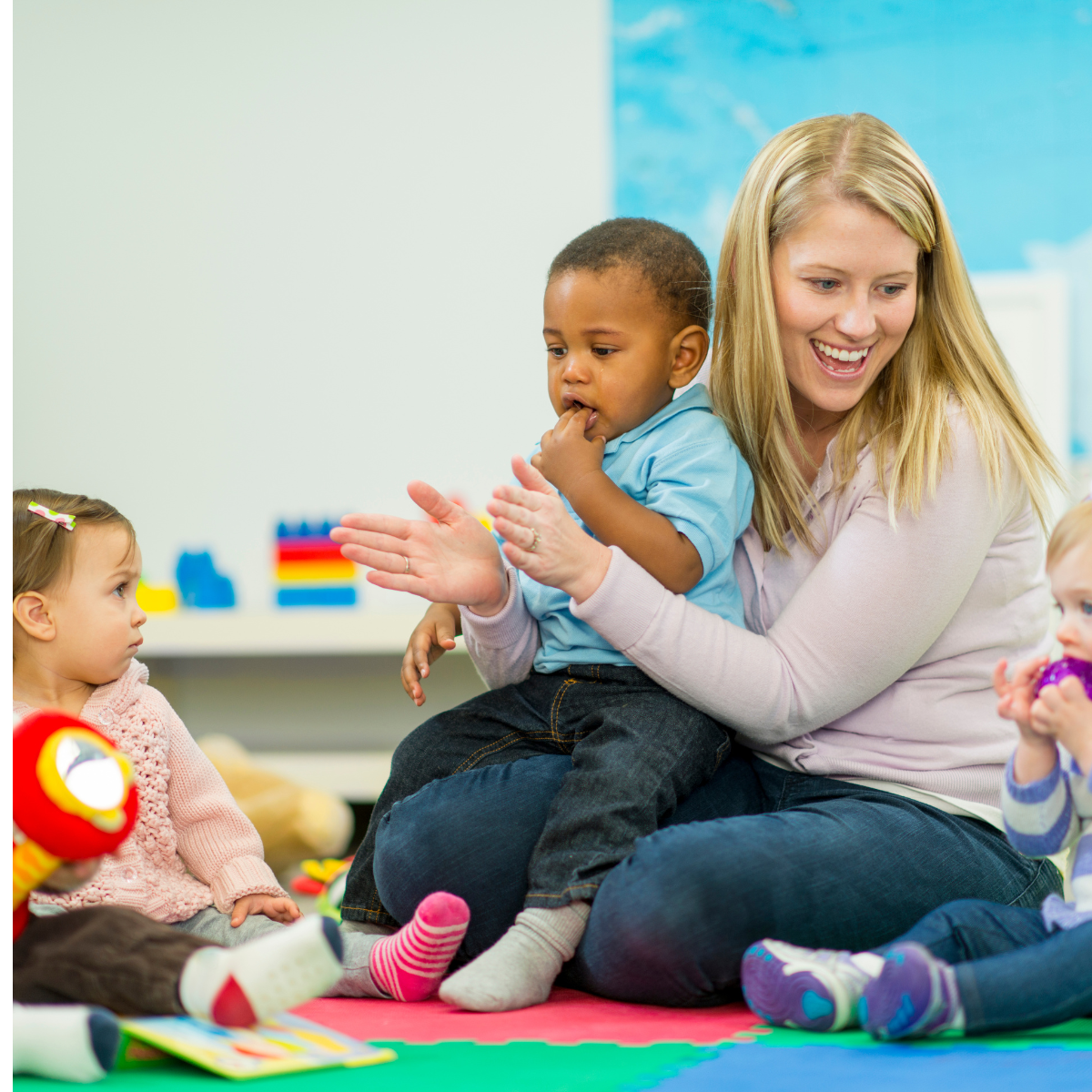Pathway
Early Childhood Education
Early childhood youth apprentices assist teachers in a variety of settings. Focus is placed on maintaining a safe and healthy environment, building relationships with parents and staff, and implementing learning activities.
Length of the Apprenticeship: One or two years

Job Competencies
Year 1: Youth apprentices must complete a total of 15 competencies. Fourteen must be from the list below. If necessary, employers can substitute 1 competency with another occupationally appropriate skill. That skill should be added to the competency list for assessment.
Year 2: Youth apprentices must complete a total of 16 competencies. Fourteen must be from the list below. If necessary, employers can substitute 1 competency with another occupationally appropriate skill. Those skills should be added to the competency list for assessment.
Note: In most settings, youth apprentices must meet the requirements set forth by the WI Department of Children and Families (DCF) for Early Childhood Program Aide (at least 16 years of age) or Early Childhood Assistant Teacher (at least 17 years of age with appropriate training). The DCF childcare regulation requirements are outline in more detail their website: Wisconsin Child Care Regulation.
-
YEAR 1 Competencies
- Obtain training or certification requirements required for employment
- Assess environment for safety hazards
- Maintain a clean and sanitary environment
- Adhere to emergency procedures
- Follow employer child tracking procedures
- Serve meals
- Foster social interaction during meals
- Instruct children on personal hygiene
- Model personal hygiene
- Follow toileting and diapering procedures
- Incorporate teacher-directed activities for small and large groups
- Implement outdoor learning activities
- Establish positive relationships with children and families
- Comply with licensing regulations
YEAR 2 Competencies
- Maintain training or certification requirements for required for employment
- Care for minor injuries and illnesses
- Conduct informal observations
- Perform food preparation
- Implement developmentally appropriate positive guidance strategies
- Teach social and emotional skills
- Support culturally responsive environments, activities, and materials
- Implement modifications to routines, environments, and equipment to ensure inclusivity
- Integrate learning opportunities into caregiving routines
- Evaluate the lesson plan
- Model interpersonal skills with children and families
Related Instruction
Students must enroll in 1 High School Credit or 3 College Credits of related instruction each year they participate in the Youth Apprenticeship program.
Purpose of Related Instruction
The purpose of choosing a related instruction course is to ensure students are learning technical and academic skills that support the student's ability to perform their work tasks. This should be done concurrently with on-the-job training to make relevant connections between learning competencies and work.
Choosing Related Instruction
You will collaborate with your YA Coordinator and School Counselor to determine the most appropriate option for related instruction. A course within your high school directly related to the career pathway is ideal, especially if dual credits and/or hours related to a potential registered apprenticeship are offered.
If there is not a directly related course in your school district, related instruction in the same career cluster is also acceptable.
If there is not a course within that career cluster in your school district, you may request to register for a college course through the Start College Now program with a local technical college, Early College Credit from a local university, or from an alternative provider such as Destinations Career Academy.
-
- Child Development
- ECE: Health, Safety, & Nutrition
- ECE: Foundations of Early Childhood Education
- ECE: Social Studies, Art ,& Music
- ECE: Infant and Toddler Development
- Oral/Interpersonal Communication
- Speech
- Technical Writing & Communication
- Written Communication
- Computer Literacy
- Career Development/Employability Skills
- College 101
- Diversity Studies
- Entrepreneurship or Intro to Business
- Independent Living
- Leadership and Civic Engagement Courses
- Personal Financial Literacy or Consumer Economics
- Psychology
- S.T.E.M.
- CPR
- Family Living
- Sociology
-
High School and College Courses
- Child Development
- ECE: Health, Safety, & Nutrition
- ECE: Foundations of Early Childhood Education
- ECE: Social Studies, Art ,& Music
- ECE: Infant and Toddler Development
Post Secondary
There are numerous opportunities to continue your education after completing the Youth Apprenticeship program.
Registered Apprenticeships
Registered Apprenticeships in the Education and Training pathways are not currently available.
